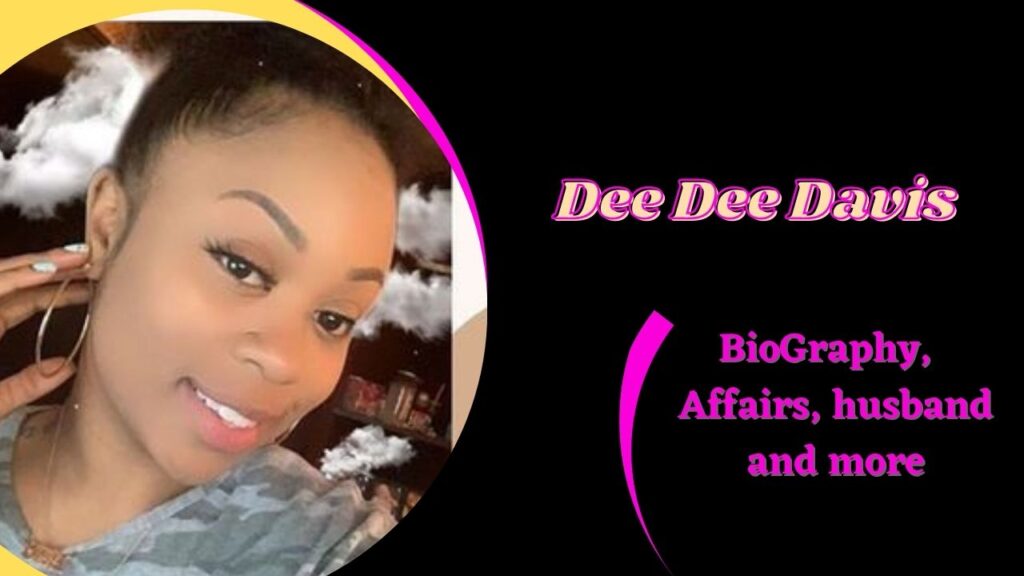
Dee Dee Davis Leaks refers to the unauthorized disclosure of private and sensitive information belonging to Dee Dee Davis, an American actress and singer. The leaks, which occurred in 2023, included personal photographs, videos, and text messages that were shared online without Davis's consent.
The leaks had a significant impact on Davis's personal and professional life. She faced public scrutiny and ridicule, and her reputation was damaged. The leaks also raised concerns about the privacy and security of personal data in the digital age.
The Dee Dee Davis leaks are a reminder of the importance of protecting our personal information online. We should all be aware of the risks of sharing sensitive information, and we should take steps to protect our privacy.
Dee Dee Davis Leaks
The unauthorized disclosure of private and sensitive information belonging to Dee Dee Davis, an American actress and singer, has brought to light several key aspects related to privacy, technology, and the media.
- Privacy: The leaks highlight the importance of protecting personal information online, as sensitive data can be easily shared without consent.
- Technology: The leaks demonstrate the power of technology to both empower and harm individuals, as social media platforms can be used to spread sensitive information rapidly.
- Media: The leaks raise questions about the role of the media in reporting on private information, as some outlets published the leaked material without Davis's consent.
- Cybersecurity: The leaks emphasize the need for strong cybersecurity measures to protect personal data from unauthorized access.
- Consent: The leaks underscore the importance of obtaining consent before sharing personal information, as individuals have the right to control their own data.
- Reputation: The leaks illustrate the potential damage that can be done to an individual's reputation when private information is made public.
- Public Scrutiny: The leaks highlight the intense public scrutiny that celebrities and public figures face, and the toll it can take on their personal lives.
- Legal Implications: The leaks raise legal questions about the unauthorized disclosure of private information, and the potential for legal recourse for victims.
- Social Impact: The leaks have sparked a broader conversation about the privacy rights of individuals in the digital age.
The Dee Dee Davis leaks serve as a cautionary tale about the importance of protecting our personal information online. They also raise important questions about the role of technology, the media, and the law in safeguarding our privacy.
Privacy
The unauthorized disclosure of personal information belonging to Dee Dee Davis, known as the "Dee Dee Davis leaks," underscores the critical importance of protecting our privacy online.
- Unauthorized Access: The leaks occurred due to unauthorized access to Davis's personal devices and accounts, highlighting the vulnerability of our personal data to hacking and other forms of cybercrime.
- Rapid Spread: The leaked information, including private photographs and messages, spread rapidly across the internet through social media platforms, demonstrating the ease with which sensitive data can be shared without consent.
- Loss of Control: Victims of data leaks, like Davis, often lose control over their personal information, which can be used for malicious purposes such as identity theft or extortion.
- Public Scrutiny: In the case of public figures like Davis, data leaks can lead to intense public scrutiny and judgment, causing significant emotional distress and damage to reputation.
The Dee Dee Davis leaks serve as a stark reminder that we must take proactive measures to protect our personal information online. This includes using strong passwords, enabling two-factor authentication, and being mindful of what information we share on social media.
Technology
The Dee Dee Davis leaks are a prime example of how technology can be used to both empower and harm individuals. Social media platforms, which have become an integral part of our lives, played a significant role in the spread of Davis's private information.
- Empowerment: Social media platforms can be used to connect with others, share information, and raise awareness about important issues. In the case of the Dee Dee Davis leaks, social media was used to spread awareness about the unauthorized disclosure of her private information and to show support for Davis.
- Harm: Social media platforms can also be used to spread harmful information, including private and sensitive data. In the case of the Dee Dee Davis leaks, social media was used to spread Davis's private photographs and messages without her consent, causing her significant distress.
The Dee Dee Davis leaks highlight the importance of understanding the potential risks and benefits of social media and other online platforms. We must use these technologies wisely and responsibly to protect our privacy and the privacy of others.
Media
The Dee Dee Davis leaks have raised important questions about the role of the media in reporting on private information. Some media outlets published the leaked material without Davis's consent, sparking a debate about the ethics of reporting on private information and the potential harm it can cause to victims.
There are several reasons why the media's handling of the Dee Dee Davis leaks is problematic. First, it is a violation of Davis's privacy. She did not consent to the release of her private information, and its publication without her consent is a clear violation of her rights.
Second, the publication of the leaked material can cause significant harm to Davis. The leaked photographs and messages are deeply personal, and their release has caused Davis embarrassment, humiliation, and emotional distress. In some cases, the publication of private information can even lead to physical harm, such as stalking or harassment.
Third, the media's publication of the leaked material sets a dangerous precedent. If media outlets are allowed to publish private information without consent, it will make it more difficult for victims of data leaks to protect their privacy. It will also make it more likely that people will be hesitant to share personal information online, which could have a chilling effect on free speech.
The Dee Dee Davis leaks are a reminder that the media has a responsibility to protect the privacy of individuals. Media outlets should not publish private information without consent, and they should be held accountable for doing so.
Cybersecurity
The Dee Dee Davis leaks underscore the critical need for robust cybersecurity measures to safeguard personal data from unauthorized access. The leaks occurred due to a breach in Davis's personal devices and accounts, highlighting several key aspects of cybersecurity:
- Vulnerability of Personal Devices: The leaks serve as a stark reminder that personal devices, such as smartphones and computers, can be vulnerable to hacking and other forms of cyberattacks. Strong passwords, two-factor authentication, and regular software updates are essential to protect these devices.
- Importance of Data Encryption: Encrypting sensitive data, such as personal photographs and messages, can make it more difficult for unauthorized individuals to access and misuse the information, even if they gain access to the device.
- Regular Security Audits: Conducting regular security audits can help identify vulnerabilities in cybersecurity systems and prevent potential breaches. This involves assessing the effectiveness of existing security measures and identifying areas for improvement.
- Educating Users: Cybersecurity is not just about implementing technical measures; it also involves educating users about potential risks and best practices. Employees and individuals should be aware of phishing scams, social engineering attacks, and other common threats to cybersecurity.
The Dee Dee Davis leaks provide valuable lessons for individuals and organizations alike. By implementing strong cybersecurity measures, we can protect our personal data from unauthorized access and minimize the risk of data breaches.
Consent
The unauthorized disclosure of Dee Dee Davis's private information, known as the "Dee Dee Davis leaks," highlights the paramount importance of consent in protecting personal data. Consent is the voluntary agreement of an individual to share their personal information, and it is a fundamental aspect of privacy rights.
- Respect for Individual Autonomy: Consent recognizes the autonomy of individuals to make decisions about their own personal information. It empowers them to control how and with whom their data is shared, ensuring that their privacy is respected.
- Prevention of Unauthorized Use: Obtaining consent before sharing personal information helps prevent its unauthorized use or disclosure. In the case of the Dee Dee Davis leaks, her private photographs and messages were shared without her consent, violating her right to control her own data.
- Protection from Harm: Consent is essential for protecting individuals from potential harm that may arise from the misuse of their personal information. Unauthorized disclosure can lead to identity theft, harassment, and other negative consequences.
- Legal and Ethical Obligations: Many jurisdictions have legal and ethical frameworks that require organizations to obtain consent before collecting and using personal information. Violating these obligations can result in legal penalties and reputational damage.
The Dee Dee Davis leaks serve as a stark reminder of the importance of consent in the digital age. By obtaining consent before sharing personal information, we can protect individual privacy, prevent unauthorized use, and safeguard against potential harm.
Reputation
The unauthorized disclosure of private information, as seen in the "Dee Dee Davis leaks," can have a devastating impact on an individual's reputation. When personal photographs, videos, or messages are shared without consent, it can lead to public scrutiny, ridicule, and a damaged reputation.
In the case of Dee Dee Davis, the leaked material included private photographs and messages that were widely shared on social media. This led to intense public scrutiny and negative comments, damaging her reputation and causing her significant emotional distress.
The damage to reputation caused by the "Dee Dee Davis leaks" highlights the importance of protecting personal information online. Individuals should be aware of the risks of sharing sensitive information and take steps to protect their privacy.
Organizations also have a responsibility to protect the privacy of individuals whose data they collect. They should implement robust security measures to prevent unauthorized access to personal information and have clear policies in place regarding the collection, use, and disclosure of personal data.
Public Scrutiny
The "Dee Dee Davis leaks" exemplify the intense public scrutiny that celebrities and public figures face in the digital age. The unauthorized disclosure of Davis's private photographs and messages led to widespread media coverage and public commentary, subjecting her to relentless scrutiny and judgment.
This intense public scrutiny can have a profound impact on individuals' personal lives. The relentless media attention and public commentary can be overwhelming, leading to feelings of shame, anxiety, and depression. In Davis's case, the leaks caused her significant emotional distress and damaged her reputation.
The "Dee Dee Davis leaks" underscore the need for greater understanding and empathy towards celebrities and public figures who face intense public scrutiny. Their personal lives should be respected, and their privacy should be protected.
Legal Implications
The "Dee Dee Davis leaks" have significant legal implications, raising questions about the unauthorized disclosure of private information and the potential for legal recourse for victims.
In the United States, there are several laws that protect the privacy of individuals, including the Privacy Act of 1974, the Health Insurance Portability and Accountability Act (HIPAA), and state laws that protect against identity theft and unauthorized access to electronic devices. These laws may provide legal recourse for victims of data leaks, such as the "Dee Dee Davis leaks." Victims may be able to file lawsuits against the individuals or organizations responsible for the leaks, seeking damages for emotional distress, reputational harm, and other losses.
The "Dee Dee Davis leaks" highlight the need for stronger laws to protect the privacy of individuals in the digital age. As technology advances and data breaches become more common, it is important to have laws in place that hold accountable those who illegally obtain and disclose private information.
Social Impact
The "Dee Dee Davis leaks" have had a significant social impact, sparking a broader conversation about the privacy rights of individuals in the digital age.
Prior to the leaks, public awareness about the importance of data privacy was relatively low. However, the unauthorized disclosure of Davis's private information brought the issue to the forefront, leading to widespread discussions and debates.
The leaks have raised awareness about the ease with which personal information can be compromised and shared online. They have also highlighted the need for stronger laws to protect individuals' privacy in the digital age.
The "Dee Dee Davis leaks" have had a real-world impact. In the United States, several states have introduced legislation to strengthen data privacy protections. Additionally, the leaks have led to increased public pressure on social media companies to do more to protect users' privacy.
The broader conversation about privacy rights sparked by the "Dee Dee Davis leaks" is a positive development. It is important for individuals to be aware of the risks to their privacy online and to take steps to protect their personal information. It is also important for lawmakers to enact strong laws to protect individuals' privacy rights in the digital age.
Frequently Asked Questions about the "Dee Dee Davis Leaks"
The "Dee Dee Davis leaks" refer to the unauthorized disclosure of private and sensitive information belonging to Dee Dee Davis, an American actress and singer. The leaks, which occurred in 2023, included personal photographs, videos, and text messages that were shared online without Davis's consent.
Below are six frequently asked questions about the "Dee Dee Davis leaks":
Question 1: What are the "Dee Dee Davis leaks"?The "Dee Dee Davis leaks" refer to the unauthorized disclosure of private and sensitive information belonging to Dee Dee Davis, an American actress and singer. The leaks, which occurred in 2023, included personal photographs, videos, and text messages that were shared online without Davis's consent.
Question 2: How did the leaks happen?The leaks occurred due to unauthorized access to Davis's personal devices and accounts. It is believed that hackers gained access to Davis's iCloud account and downloaded her personal data.
Question 3: What was the impact of the leaks?The leaks had a significant impact on Davis's personal and professional life. She faced public scrutiny and ridicule, and her reputation was damaged. The leaks also raised concerns about the privacy and security of personal data in the digital age.
Question 4: What legal recourse does Davis have?Davis may have legal recourse against the individuals responsible for the leaks. She may be able to file a lawsuit for damages, including emotional distress, reputational harm, and invasion of privacy.
Question 5: What can be done to prevent similar leaks in the future?There are several steps that can be taken to prevent similar leaks in the future. Individuals should use strong passwords, enable two-factor authentication, and be mindful of what information they share online. Social media companies and other online platforms should also implement strong security measures to protect user data.
Question 6: What are the key takeaways from the "Dee Dee Davis leaks"?The "Dee Dee Davis leaks" are a reminder of the importance of protecting our personal information online. We should all be aware of the risks of sharing sensitive information, and we should take steps to protect our privacy.
Tips to Protect Your Privacy in the Digital Age
The "Dee Dee Davis leaks" highlight the importance of protecting our personal information online. Here are five tips to help you safeguard your privacy:
Tip 1: Use Strong Passwords
Use strong passwords that are at least 12 characters long and include a mix of uppercase and lowercase letters, numbers, and symbols. Avoid using common words or phrases that can be easily guessed.
Tip 2: Enable Two-Factor Authentication
Two-factor authentication adds an extra layer of security to your online accounts. When you log in to an account, you will be prompted to enter a code that is sent to your phone or email address. This makes it much more difficult for hackers to access your accounts, even if they have your password.
Tip 3: Be Mindful of What You Share Online
Be mindful of what information you share online, especially on social media. Avoid sharing personal information such as your address, phone number, or birthdate. Also, be careful about sharing photos or videos that could be used to identify you.
Tip 4: Use a VPN
A VPN (virtual private network) encrypts your internet traffic, making it more difficult for hackers to intercept your data. This is especially important when using public Wi-Fi networks.
Tip 5: Keep Your Software Up to Date
Software updates often include security patches that fix vulnerabilities that hackers can exploit. Keep your software up to date to protect your devices from malware and other threats.
By following these tips, you can help protect your privacy in the digital age.
Remember, it is important to be vigilant about protecting your personal information. By taking these simple steps, you can make it more difficult for hackers to access your data and compromise your privacy.
Conclusion
The "Dee Dee Davis leaks" have brought to light several important issues related to privacy, technology, and the media. The leaks highlight the importance of protecting our personal information online, as sensitive data can be easily shared without consent. The leaks also demonstrate the power of technology to both empower and harm individuals, as social media platforms can be used to spread sensitive information rapidly.
The "Dee Dee Davis leaks" are a reminder that we must all be vigilant about protecting our privacy in the digital age. We should all be aware of the risks of sharing sensitive information, and we should take steps to protect our privacy. We should also support laws and regulations that protect our privacy rights.
Unveiling The Truth: Exploring The Impact And Consequences Of "gabrielle Moses Leaked Of"
Unveiling The Truth: A Deep Dive Into The "Good Lord Lori OnlyFans Leaks"
Unveiling The Enigma: Why The Beaver Bears Its Name

Dee Dee Davis AKA Baby Girl from 'The Bernie Mac Show' Shows Wavy Hair

Dee Dee Davis Stock Editorial Photo © s_bukley 17293551

Who is Dee Dee Davis (Baby Girl)? wikipedia, age, net worth
ncG1vNJzZmirqaO8t3rApqpsZpSetKrAwKWmnJ2Ro8CxrcKeqmebn6J8pbHEZpuenV2Zrre10majnpmbqHupwMyl